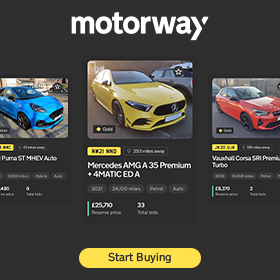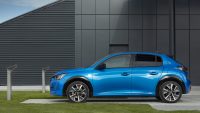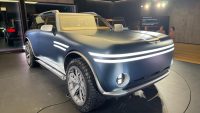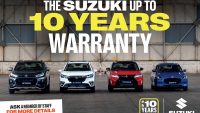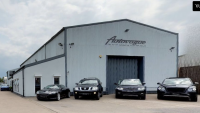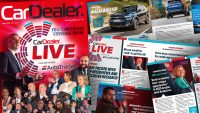Social media can be a brilliant but also frustrating place.
It’s extremely easy to read opinions from all sides of an argument and, so long as everyone keeps it sensible, have a healthy debate that may teach you a thing or two along the way.
The topic of EV ownership seems to be becoming almost Brexit-like-divisive amongst those who are adamantly pro-EV and those against electrification. Then there’s also a whole host of people in between.
They’re people like myself, and I’m assuming many franchised dealers, who desperately want electric adoption to speed up but don’t feel like key decision-makers are keeping up with their end of the bargain – meaning for many, it simply wouldn’t be realistic to consider an EV in the near future.
We fully support OEMs and franchised dealers and have great sympathy for the situation that many find themselves in with aspects of electric investment not yet yielding expected returns through no fault of their own.
This is because there are well-known barriers to the sale of EVs, such as price, choice, charge time, range anxiety, etc, and I’m pleased to say that – after conducting annual surveys of our two million motorists over the past three years – each of those barriers are steadily coming down.
But there are significant barriers that remain and many of them lie at the feet of those in charge who have seemingly had a laissez-faire attitude to EV adoption, despite hanging extremely aggressive targets around the automotive industry’s neck.
It’s here where many comments on social media are seemingly driving frustration and anger in the wrong direction.
In Q2 2020, there were seven public chargers per EV, in Q2 2021 it was 11 and Q2 2022 15. Today there are 18.
There are just short of 45,000 charging stations – more than 10,000 of which are slow chargers – which is desperately short of the government’s own 300,000 target.
Yes, they have time to catch up, but last year they installed just over 7,000.
In our own research, only half of those surveyed were aware of where their nearest charging stations are and, staggeringly, 97 per cent said today’s charging infrastructure isn’t good enough to meet demand – 95 per cent said it wasn’t good enough in 2022 and 92 per cent said the same in 2021.
Barrage of apps
No doubt those figures take into account feelings of those without off-street parking who probably aren’t aware of solutions that only a handful of councils are now trying out.
Perhaps even more worryingly, 90 per cent said they don’t expect charging to be good enough in 2030, compared with 81 per cent who said the same last year and 70 per cent in 2021.
And when stations are built and working, motorists are faced with a barrage of apps they have to sign up to.
Now, legislation has just been laid that will put an end to this and force the adoption of simple technology that means a motorist can use just one app on all public chargers.
But some pretty average project management would’ve seen this coming, and why this is only happening now after tonnes of bad press that’s bedded in an image of inconvenience is extremely frustrating.
As a result, businesses such as ourselves at Regit and many of you reading this article are now no doubt urging those in charge to walk as well as they talk so that consumers have confidence to consider electric if they want to – without having the choice taken away.
By the very nature of pushing for better, we’re going to need to highlight failings, but without doing so lies a bigger risk of change never arriving.
From our point of view, the team at Regit are having around 1,000 car-buying conversations per day and, although most of those will involve some level of consideration for electric or hybrid, I would’ve expected sales of EVs to be higher than current figures if you asked me five years ago.
Our job isn’t to push every lead we get into an EV.
Instead, we simply help motorists transition to whichever more sustainable form of motoring is right for them – whether that’s fully electric or upgrading from Euro 4 to Euro 6. This is a stance I’m sure many dealers are familiar with.
So where does that leave us? I expect solid lead gen strategies targeted at the used EV market will begin to pay dividends as customers become more aware of price reductions and my next car will also be an EV – there are some truly stunning models up for grabs.
In the meantime, I’ll keep a keen eye on how things develop and I’m fully expecting to look back in 10 years’ time at what was one of the most radical and progressive decades the motor industry has ever seen.
But whatever happens, it’s vital we continue pushing those ultimately in charge to keep their promises, given that so much of our finances have, and will, be spent on electrification.










